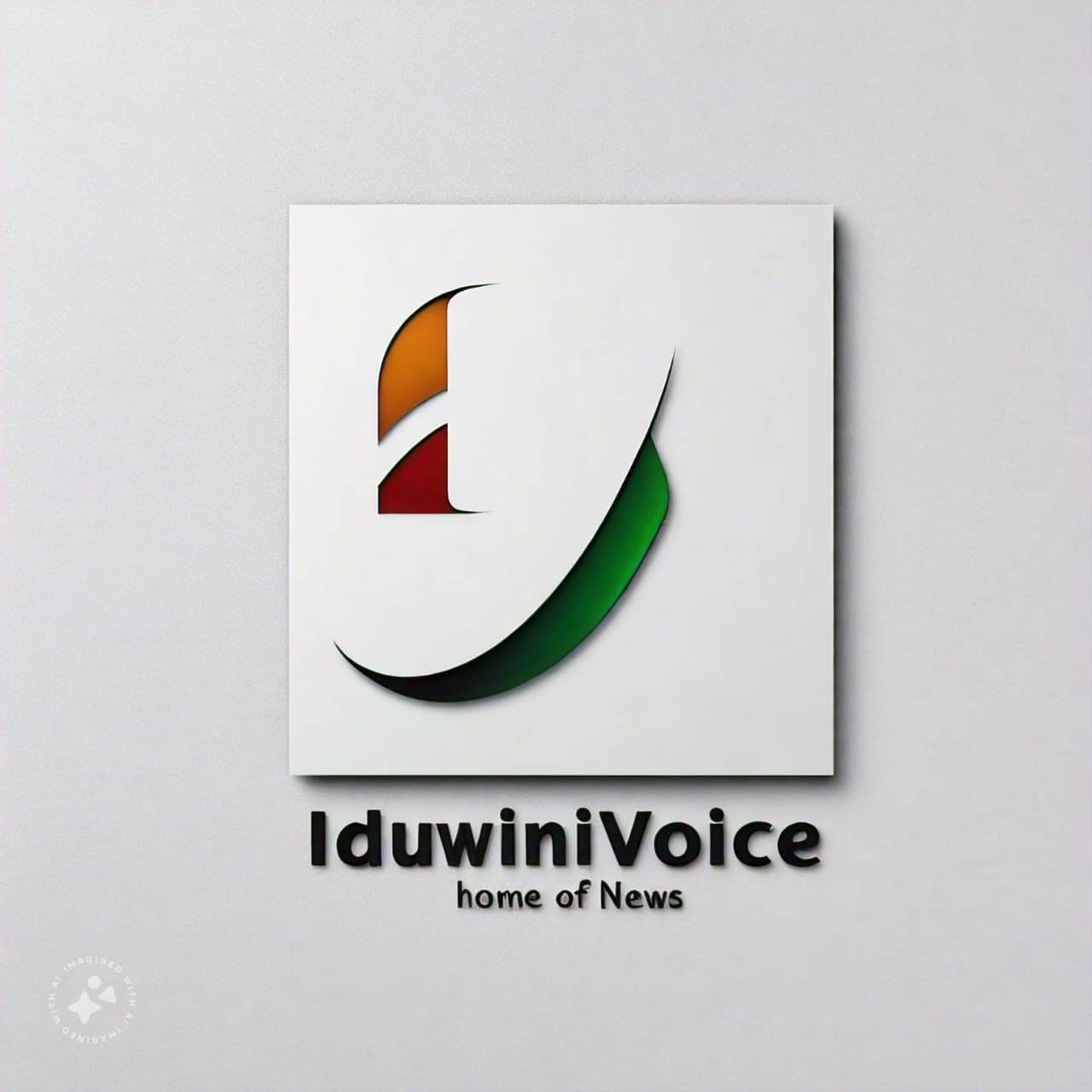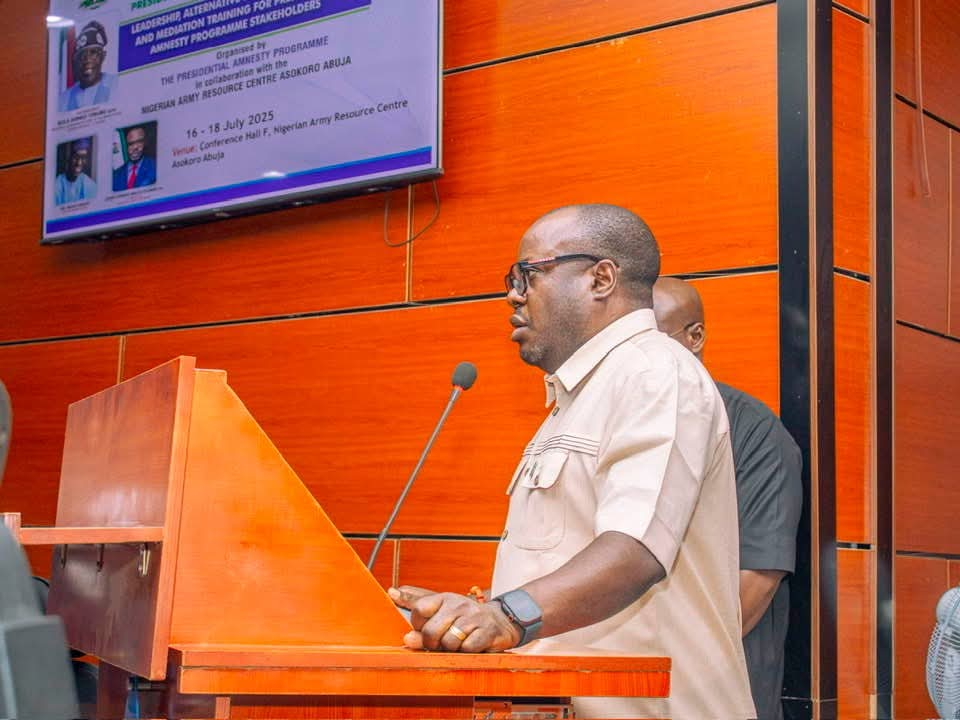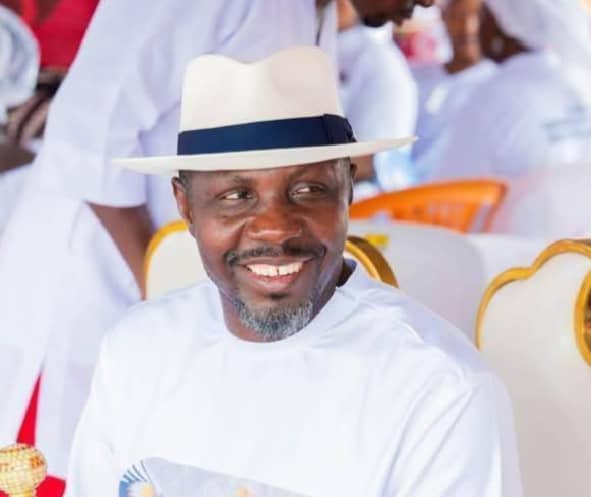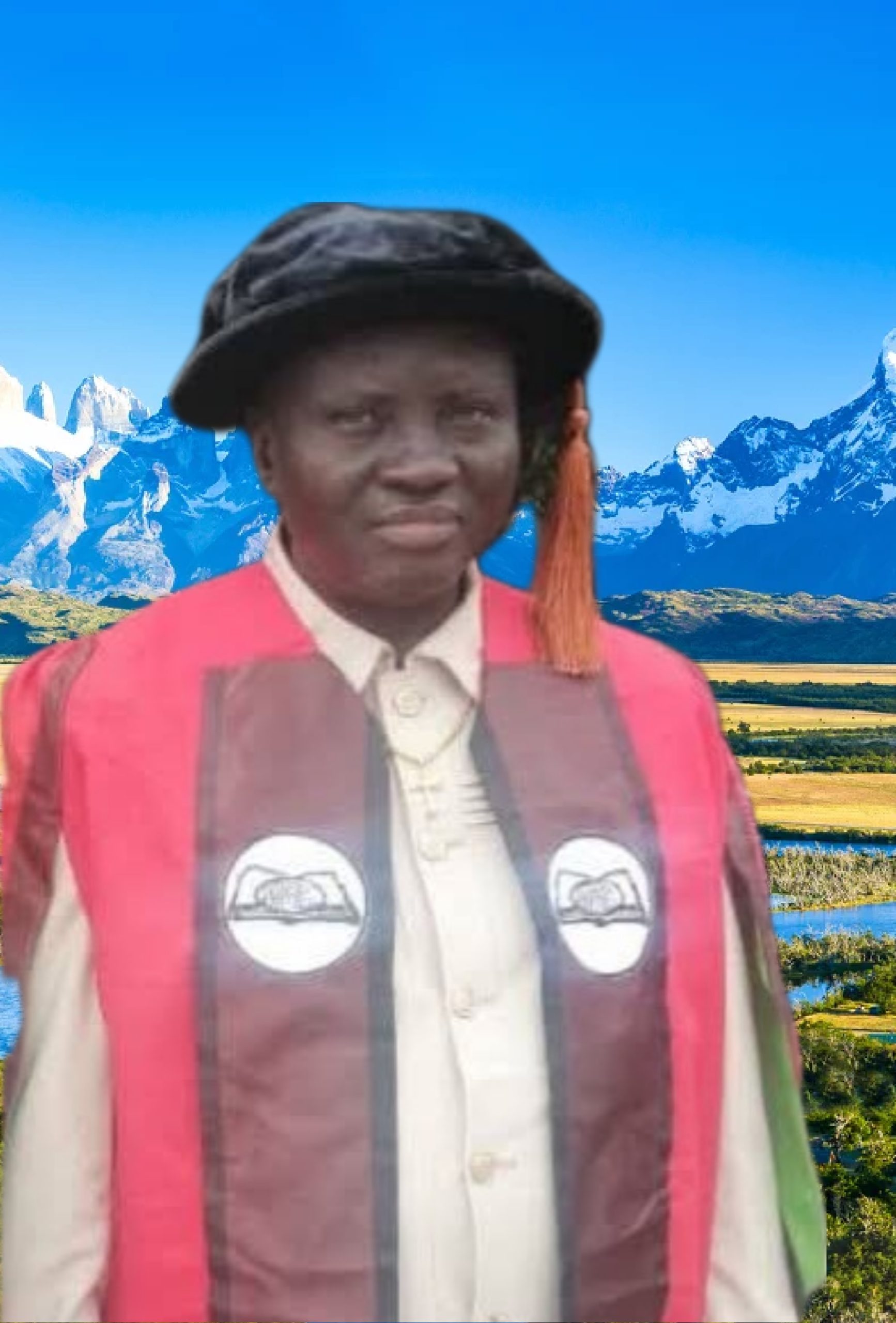Columns
Freeing Nigeria

Freeing Nigeria
By Obi Nwakanma
By every index, Nigeria as a nation, has very nearly, finally collapsed. It is held together now only by a very weak thread called fate. Basically, Nigeria has slipped to the symbolic phase of nationhood. It can only perform symbolic actions of nationness: convoke a parliament which only sits symbolically because it is actually not a parliament; issue laws, which carry only symbolic authority because they have no life, and are unenforceable; issue executive papers that have no administrative force, because it is not connected to institutions that serve citizens. There are no citizens.
This nation has no archive, nor does it have any memories to preserve. Its memos are treatises of subjugation rather than of transcendence. The instrumental phase of Nigeria as a nation is in abeyance. Its survival is tenuous. Those inside Nigeria feel like captives held prisoner by some abstract, colonial will. They no longer feel like they have a common endeavor or a common obligation to share community or build a nation as a mutual aid society. 78% of the inhabitants of this geographical space no longer believe in Nigeria.
The idea of “One Nigeria” today has become, to all intent and purpose, a ruse. No one believes it. People generally do not care anymore about Nigeria. They just want to leave it, or abolish it. There is no longer a happy memory to be shared about Nigeria around campfires, or family dinners, or social club meetings. There is no longer talk about its promise, or its national goals. Nigerians have lost patriotic feeling towards Nigeria, and are praying zealously for its natural death. For many, the situation of Nigeria and its current existence is an insult to their dignity, and a threat to their humanity.
The four horsemen of its apocalypse – brain-frying hunger, disease, war (ethnic and other civic conflicts), and the conquest of Nigeria – have been unleashed on Nigeria. Nigerians do not see the light, but they feel this wave of intense darkness emitting from that sanctuary of Satan called Aso Rock. I want to reiterate a point I made in my last “Orbit” column, to the effect that no nation can claim to be independent and free if it has no sovereign control of its state institutions. Nigeria as a nation has no sovereign control of its institutions.
The primary source of state or executive governance, the Civil Service, has been corrupted, and absorbed into a matrix of systems controlled from outside. It is no longer an organic, apolitical and independent Service, but rather a leaky, bedraggled ship characterized by obtuseness and incompetence. The president does not govern, he “rules” excathedra. The National Executive Council is papier- mache. It is just decorative. It is a very strange council, among which are some of the most corrupt people to enter public life in Nigeria. One of the ministers has been publicly accused of allegedly recruiting and funding the terrorist group, Boko Haram.
He has not denied it, and there is overwhelming evidence that should lead to a National Assembly inquiry, his resignation, and his prosecution for treason against the federation, if found wanting. But he, in spite of all this, is still holding sensitive position. Dear Nigerians, just imagine it. The National Security system is under foreign control. This is not the Nigeria that could deploy ECOMOG. The Nigerian military can no longer defend the territory of Nigeria, much less defend and secure West Africa, because it has been strategically weakened, contained, and confined.
It does not have the capacity of a sovereign military force. It cannot design, develop, build, manufacture and deploy its own tools. It is dependent on the handouts of used and second rate tools from international donor agencies. The Nigerian Armed Forces is an Army on paper. It is operationally weak and almost doctrinally nonexistent. Nigerians can no longer depend on it to defend Nigeria from enemies internal and external, unless it is reimagined, reorganized, redeployed, and repositioned. The facts are too glaring to itemize. As for the Police, it does not exist.
The Nigerian police as it is currently constituted is an embodiment of everything that went wrong with Nigeria. It serves currently, mostly as an enforcement squad for any government in power. Politicians use them as political thugs. Drug lords use them to run protection or execution rackets. In Imo State, just recently, the youth threatened to rise up and expel them because they now constitute an extortion syndicate. They have become far too dangerous a threat to the continued existence of young men and women in Imo State. Therein lies the danger of this moment in Nigerian national life, when the state feels like a “noyau” state, captured and quite frankly, irrelevant to the existence of Nigerians.
When people are pushed so further out that they have nothing to lose, they welcome and embrace death. It becomes better to die than to live in indignity. Many young Nigerians are now embracing death. They have nothing more to lose. They live in indignity. Many young folks have become addicted to crystal meth – the menace and scale of this addiction crisis reflects the increasing alienation of the young folk. In the East they call it “Mkpulumili.” It is the waste of an entire generation. There is industrial scale destruction of the youth of Nigeria. Family ties have fractured and are broken.
Entire towns have been destroyed as the young no longer are there. An entire generation has not only been destroyed,a new generation is already dying in the womb of Nigeria. The youth of Nigeria are giving up on the pursuit of education. It is no longer their dream to serve their nation. There is no nation to serve. Many are also not looking any longer for work. What is the point of striving when it gets you nothing? That is the current mood of Nigerians. The “Japa” option is no longer even an option, because even those who thought they escaped are discovering the intense meaninglessness of exile.
The clearest, most poignant evidence of the collapse of Nigeria happened right before us, this past week. Both the President and VicePresident of Nigeria were nowhere to be found. Both men embarked on foreign junkets. No one was in charge. Nigeria was so totally without government. This is unprecedented. Nigerians now call Mr. Tinubu, T-Pain, on account of the terrifying trauma Nigerians now suffer because of his thoughtless and ungrounded policies. It is heartless. It is reckless. It is without the milk of human kindness.
These are the darkest days in Nigeria. Nigeria is not at war, but aid workers are now reporting seeing early cases of Kwashiorkor among Nigerian children. Mr. Tinubu is clearly, not only clueless, he is unintelligent! Nigeria is evidence of the terrible limits of Tinubu’s mind, and the terrible absence of a well-established National Assembly to contain him. The job of the National Assembly seems pretty straightforward. It exercises oversight over the executive arm, and subjects the president to the constitution. Where the president breaks the laws, or proves unfit to govern, the National Assembly must impeach him.
Mr. Bola Ahmed Tinubu, in my view, given his serial failures, is unfit to govern Nigeria, and needs to be held accountable for what has been done to undermine Nigeria; for his reckless disregard of the constitution with regards to presidential function; for the questionable status of his oath of allegiance to the republic, and for the roles he has played from 2016 in subverting and destroying the institutions of this federation, which he now seems to run like his private estate. The capture of the Nigerian state, starting with the eight cruel years of Buhari, and now this, seems to be leading to its inevitable crack. Built as many observers of Nigerian have pointed out, Nigeria has proved too elastic. Nigerians seem to have an unlimited capacity to endure the worst governments.
But something new also seems to be rising among Nigerians. There is a serious gathering of the clouds. Nigerians seem increasingly to be losing their fear of authority. Last week a crowd of people in Ibadan were shown stopping soldiers on the streets and openly demanding from them to take over government. But Nigerians themselves, not proxies, will have to free Nigeria from state capture. There are three ways of doing this: one is by armed insurrection, and that would require a highly tactical group of Nigerians organizing to arm themselves, and fight street by street. It is a more dangerous, and needless option. The other option is to engage the democratic process, and the democratic institutions.
Nigerians must compel, and push the National Assembly to enforce the democratic will of the republic. The only plebiscitary power the people have under the current constitution, is the power to recall their representatives from parliament, who fail to act for them. Nigerians must organize to exercise this power, recall those legislators who are in the pockets of the executive arm, and push the National Assembly to investigate and prosecute Buhari, recover Nigeria’s stolen wealth, and hold this current president, Tinubu, to account. Failure to do this will lead to the third possibility: the rise of fearless, drug-addled mobs,that will bring down this republic and smash it into smithereens with many ungoverned enclaves. We still have that crucial one minute to midnight to turn things around.
Columns
Chief Denis Otuaro, the Guiding Star of PAP

By: Professor Binebai
The Niger Delta has found a beacon of hope in Chief Dr. Dennis Otuaro, a leader of unimpeachable integrity, courage, and vision. As the helm of the Presidential Amnesty Programme (PAP), he has emerged as a champion of transformation, inspiring a region and a nation with his unwavering commitment to empowerment and progress.
In the realm of Nigerian leadership, there are those who leave an indelible mark on the sands of time, and Chief Dr. Dennis Otuaro is one such luminary. As the helm of the Presidential Amnesty Programme (PAP), he has etched a narrative of hope, redemption, and triumph, illuminating the path for the people of the Niger Delta. This tribute is a celebration of his extraordinary leadership, vision, and unwavering commitment to the cause of empowering the youths and transforming the region.
Chief Denis Otuaro’s stewardship of the Presidential Amnesty Programme (PAP) has indeed been a renaissance, a majestic sunrise after a long, dark night, as he infuses the initiative with the radiance of a new dawn.
Like the mythical Anansi, the wise and cunning spider of West African folklore, Otuaro’s leadership has woven an intricate web of hope and opportunity, capturing the challenges of the Niger Delta and transforming them into a rich mosaic of promise and progress. His vision, akin to that of the venerable Oracle of Delphi, has deciphered the complexities of post-conflict reconstruction, guiding the demobilised youths through the labyrinth of uncertainty, and into the bright light of empowerment and redemption.
Otuaro’s journey has been sustained by a resolute commitment to the cause, his leadership style a masterful blend of courage, wisdom, and compassion. His tenure has been marked by a symphony of progress, as the PAP, under his guidance, has orchestrated a harmonious balance of pacifism and pragmatism, transforming the region into a veritable Garden of Eden.
Like Athena, the Greek goddess of wisdom, Otuaro wields the power of transformation, his touch turning the arid landscape of despair into a lush oasis of hope and prosperity. His leadership has become a byword for sagacity, a testament to the transformative power of vision, courage, and compassion.
In the pantheon of Nigerian leaders, Otuaro’s name shall be etched alongside the greats, his legacy a shining testament to the indomitable human spirit, as he continues to weave a new narrative of hope, redemption, and triumph for the people of the Niger Delta.
The Niger Delta has found a leader of repute, a leader of courage, a leader of transformation, a leader of goodwill in the PAP. Let egocentric economic buccaneers and demonic agencies stop their campaign of calumny against this leader of glory.
To those who seek to undermine his efforts, we say: let envy and malice be silenced! Let the progress of the Niger Delta be the benchmark for greatness! Let Otuaro’s leadership be the inspiration for a new generation of leaders!
Columns
A Legendary Legacy: The Enduring Odyssey of High Chief (Dr.) Government Oweizide Ekpemupolo

By: Professor Ben Binebai
In the realm of Nigerian leadership, one name resonates with mythical significance – High Chief (Dr.) Government Oweizide Ekpemupolo, affectionately known as Tompolo. Born on 12 April 1971, in Warri, Delta State, Tompolo has etched his name in the annals of history, leaving an indelible mark on the Niger Delta region. As a former militant commander of the Movement for the Emancipation of the Niger Delta (MEND) and chief priest of the Egbesu deity, he has navigated the treacherous waters of war and peace, leveraging his remarkable journey to bring succour and development to his people.
Tompolo’s metamorphosis from a militant leader to a peace advocate is a testament to his unwavering commitment to the progress of the Niger Delta. His decision to embrace the Amnesty Programme in 2009 marked a turning point, as he laid down arms and picked up the mantle of transformation. Today, he is revered as a hero, celebrated for taming the turbulent waters of the Creek boys and settling major political crises in the region. By putting the Ijaw image on the Nigerian map, Tompolo has redefined the narrative, showcasing the rich cultural heritage and resilience of the Ijaw people to the world.
A nationalist and statesman emerging from the boiling pot of agitation in the Niger Delta, Tompolo has consistently demonstrated his commitment to the development and progress of his people. His agency operates in close collaboration with the government, working tirelessly to implement projects and initiatives that benefit the Niger Delta region. His leadership style is characterised by quiet strength, strategic thinking, and an unwavering commitment to the progress of his people. His efforts have earned him recognition and accolades from various quarters, solidifying his position as a dependable pillar of the Ijaw nation.
As the last voice of the Ijaw nation, Tompolo’s legacy continues to inspire hope and progress for generations to come. With institutions established for national economic stability and prosperity, his impact will be felt for years to come. Tompolo’s story serves as a beacon of hope and resilience, inspiring his people to strive for greatness.
God bless this emergent leader of the Ijaw nation.
Columns
YOUNA: WARRI CRIES FOR PEACE AND JUJUSTICE

By: Ben Binebai
In the Niger Delta region of Nigeria, a city cries out for peace, justice, and unity. Warri, a land of rich cultural heritage and economic significance, has been plagued by recurring crises, sparked by provocative actions and claims of ownership by the Itsekiri group. The cry of Warri is a call to action, a reminder that our diversity is a strength, not a weakness, and that our common humanity is worth fighting for.
The Ijaw, Urhobo, and Itsekiri communities have coexisted in Warri for centuries, sharing a rich cultural heritage and a deep connection to the land. Occasionally uniting but deeply disunited because power and hegemony have often overshadowed their shared humanity, the people of Warri yearn for a future where their differences are celebrated, and their commonalities are the foundation of their unity. Warri’s significance extends beyond its current boundaries, as it has been a hub of economic and cultural activity for centuries. Before 1952, Warri was a thriving commercial centre, with the Ijaw, Urhobo, and Itsekiri communities contributing to its growth and development.
The city’s strategic location and access to the Niger Delta’s vast resources made it an attractive location for trade and commerce. Understanding Warri’s rich history and cultural heritage is essential to finding a lasting solution to the crisis.
It is time for truth to prevail to offer a lasting solution to the Warri crisis. The canoe of godfatherism should be withdrawn for the rule of law and for peace and progress to triumph.
The lie of exclusive ownership of Warri resists termination due to several factors, including:
Outdated court judgments: The Itsekiri establishment continues to rely on outdated court judgments, such as the 1925 judgment, to support their claim of ownership, despite subsequent judgments repudiating its validity.
Lack of political will: Successive governments have failed to address the problem and take the right and just decision, allowing the crisis to persist.
Absolutist claims: The Itsekiri claim is absolutist, while the Urhobo and Ijaw claims are limited, recognising ownership of portions of Warri by other communities.
Historical narratives can be deeply ingrained*: People’s understanding of their history and identity can be shaped by long-standing narratives, making it hard to change their perspectives.
Emotions and biases can override facts: When emotions and biases are strongly tied to a particular narrative, people may resist changing their views, even in the face of contradictory evidence.
Power dynamics can influence narrative control: Those in positions of power may use their influence to shape and maintain certain narratives, making it harder to correct lies and misconceptions.
Moreover, leadership plays a crucial role in shaping the future of Warri. As the saying goes, “When leaders refuse to embrace sacrifice, society dies.” Leaders who prioritise the greater good, make tough decisions, and invest in the future can help build a more harmonious and prosperous society. It is time for the leaders of Warri to put the needs of their people first and work towards a brighter future.
The cry of Warri is a call to action, a reminder that our diversity is a strength, not a weakness. Let us work towards a brighter, more harmonious future, where the beauty of our differences is celebrated, and our common humanity is cherished. May the cry of Warri be heard, and may we rise to the challenge of building a better tomorrow for all its people.
